Rationale and common goals
Neurodegenerative disorders, particularly Alzheimer’s disease (AD), other forms of dementia and Parkinson’s disease (PD), are among the biggest health care challenges of the 21st century. There are now over 250,000 dementia patients and 40,000 patients of Parkinson’s disease in the Netherlands. Because no treatments can stop these neurodegenerative disorders amid the backdrop of an aging population, numbers are expected to rise further quickly. This poses a direct threat to the sustainability of our entire health care system. The development of treatments that stop, prevent or at least slow down the degenerative processes is crucial to reduce future costs associated with neurodegenerative disorders and hence keep our health care system viable.
Neurodegenerative disorders share a profound pathophysiological and clinical complexity. For the majority of patients, multiple causes in concert lead to the development of disease, which unfolds over the course of years, probably decades. A careful clinical evaluation is the corner stone for a valid diagnosis of any neurodegenerative disorder. Moreover, it provides fundamental insight into the basic mechanisms that are critical for the development and validation of animal models and biomarkers. To date, treatment is limited to alleviation of symptoms, but our ultimate goal is to recognize disease before it manifests clinically, understand disease mechanisms and subsequently modify the disease process to prevent progression to a full blown disease state. This goal can only be achieved by improving early diagnostics, understanding clinical heterogeneity and mixed pathologies, and unraveling underlying mechanisms in patients and relevant model systems. We are in an excellent position to execute an integrative research program tailored to these aims. New technologies and in-house assets are the necessary prerequisites for success.
Assets
Our major assets are large and unique patient cohorts (Amsterdam Dementia Cohort: ~n=5000; Parkinson cohort: ~n=1000), large biobanks, extensive (multi-modal) brain imaging facilities and clinical trials. We have a strong tradition in translational research with excellent facilities. There is a longstanding and close collaboration with the Dutch brain bank and a history of research on post mortem tissue. Furthermore, we have ample experience in executing both complex, high-end clinical trials and large nationwide clinical trials. There is extensive expertise in clinical research, generation of well-characterized patient cohorts, clinical (endo)phenotyping (including advanced imaging using MRI, PET, EEG/MEG), as well as studies of (novel) biomarkers, neuroanatomy, neuropathology, transcriptomics, proteomics, gene finding, functional characterization, cellular and animal models. A major challenge of the program is to further emphasize synergistic approaches that can lead to breakthrough findings.
Translational links: observation by passionate clinicians
The starting point and inspiration are careful clinical observation of our patients by passionate clinicians. Clinical data collected in the patient setting form the basis for our clinical research activities, and they also form the inspiration for basic science aiming to unravel the underlying brain disease mechanisms (i.e. bedside to bench). In turn, state of the art basic science aims to provide and test targets for the better diagnostic and prognostic biomarkers, and the development of novel or improved treatment (bench to bedside). Use of patient biomaterial and developing new approaches in employing patient-derived cells will boost this effort. We are fully equipped to test novel treatments (infrastructure and CRO services for Phase I-III studies are available).
Making the difference
- This program is truly translational, capitalizing on observational studies, basic science and intervention studies, with the ultimate aim to reduce the number of patients with neurodegenerative disorders, and to reduce the burden of neurodegenerative brain diseases for society at large.
We aim to achieve world-class research in:
- Early diagnostics
- Subtypes/endophenotypes
- Treatments optimizing current treatments and developing novel treatments to cure or prevent neurodegeneration, including mechanistic studies to provide input for this latter goal.
- Crossing boundaries of individual diseases to unravel specific versus generic neurodegenerative processes.
Program leaders
Taskforce team
Program members
-
Alicia Sanz Sanz
-
Alida GouwPI DR.
-
Anke Dijkstradr.
-
Anna van DamPI DR.
-
 Annebet LeeuwisPhD DR.
Annebet LeeuwisPhD DR. -
 Annel Koomen
Annel Koomen -
 Annelies van der VliesDR.
Annelies van der VliesDR. -
 Annemieke DolsPI DR. MD PhD
Annemieke DolsPI DR. MD PhD -
Annemieke RozemullerPI PROF.DR.
-
 Anouk den BraberDR.
Anouk den BraberDR. -
 Antonio Luchicchi
Antonio Luchicchi -
Argonde van HartenDR.
-
Astrid HooghiemstraDR. PhD
-
Benjamin DrukarchPI DR.
-
Betty TijmsPI DR.
-
Camilla Ornago
-
Casper de BoerDR.
-
 Channah Osinga
Channah Osinga -
 Charlotte TeunissenPI PROF.DR.IR.
Charlotte TeunissenPI PROF.DR.IR. -
 Connie JimenezPI PROF.DR.
Connie JimenezPI PROF.DR. -
Constant Verschuur
-
Cornelis StamPI PROF.DR.
-
Cristina Boers Escuder
-
Daan van Poppelen
-
Daan Velseboer
-
Debora Pita Illobre
-
Enzo ScutiglianiDR.
-
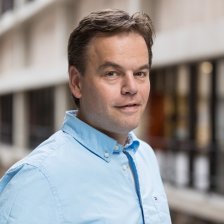 Eric ReitsPI Prof. PhD
Eric ReitsPI Prof. PhD -
 Eric van ExelPI PROF.
Eric van ExelPI PROF. -
Esmé EgginkMSc
-
Esmée van Rixel
-
 Eva van HeeseBSc
Eva van HeeseBSc -
Evangelia Thanou
-
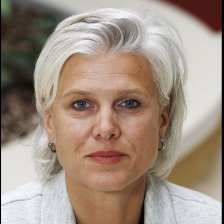 Evelien LemstraPI DR.
Evelien LemstraPI DR. -
Femke BouwmanDR.
-
 Femke FeringaDR.
Femke FeringaDR. -
Fleur van RootselaarPI DR.
-
 Fred van RuissenDR.
Fred van RuissenDR. -
Gert GeurtsenPI DR.
-
Gonzalo Blasco Güemes
-
 Guus Smit
Guus Smit -
 Hannah de Bruin
Hannah de Bruin -
 Hanneke RhodiusDR.
Hanneke RhodiusDR. -
Hendrik BerendsePI PROF.DR.
-
 Henne HolstegePI Associate Professor DR.
Henne HolstegePI Associate Professor DR. -
Henrieke Frequin
-
Hymke van der Zee
-
Ilse van StraatenDR.
-
Ires Ghielen
-
Iris Kruijff
-
Johannes KoelmanDR.
-
Joke DijkDR.
-
Jolanda DobbeMSC.
-
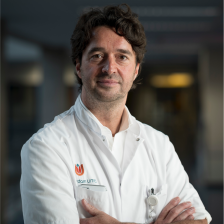 Joost RaaphorstPI
Joost RaaphorstPI -
Joost Verhaagen
-
 Jort VijverbergPI DR.
Jort VijverbergPI DR. -
Ka Wan Li
-
Kevin Marinus
-
Kim Wolzak
-
 Laura JonkmanPI DR.
Laura JonkmanPI DR. -
Léa Dugue
-
Leonie VisserDR.
-
 Lianne ReusDR.
Lianne ReusDR. -
Maarten BotMD
-
 Maarten WittePI DR.
Maarten WittePI DR. -
Marijke Stokkel
-
 Marissa Zwan
Marissa Zwan -
Marius Patru
-
Marta Jorge Oliva
-
 Martijn BeudelPI DR.
Martijn BeudelPI DR. -
Melanie HafdiMD MSc
-
Micha WilhelmusDR.
-
 Mirjam GeerlingsPI
Mirjam GeerlingsPI -
 Nicole van der WelDR.IR.
Nicole van der WelDR.IR. -
Niels Reinders
-
 Odile van den HeuvelPI PROF.
Odile van den HeuvelPI PROF. -
 Paul Lucassenprof. dr.
Paul Lucassenprof. dr. -
Pepijn van den MunckhofPI DR.
-
Philip ScheltensPI PROF.DR.
-
Pieter EikelenboomPROF.DR.
-
Pieter VisserPI PROF.DR.
-
Rick SchuurmanPI PROF.DR.
-
Rik OssenkoppelePI DR.
-
 Rik van der Kant
Rik van der Kant -
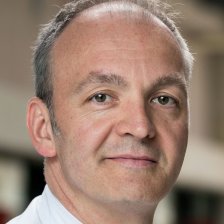 Rob de BiePI PROF.DR.
Rob de BiePI PROF.DR. -
Roberta Giannelli
-
Robin Pelle
-
Ronald van Kesteren
-
Roos JuttenDR.
-
Rozemarije HolewijnDRS.
-
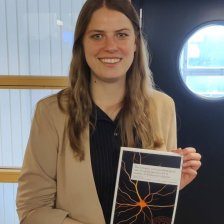 Sabine Konings
Sabine Konings -
Sabine Schipper - KromPhD
-
Saskia Weller
-
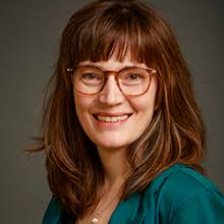 Sietske SikkesPI DR.
Sietske SikkesPI DR. -
Sonja Rutten
-
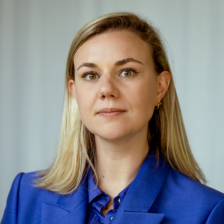 Sterre de BoerMD
Sterre de BoerMD -
 Sven van der LeePI DR. MD
Sven van der LeePI DR. MD -
Tasha Ibrahim
-
Tim MoorsMSC. DR.
-
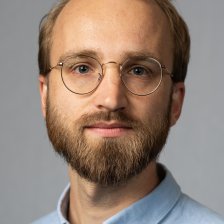 Tim van BalkomDR.
Tim van BalkomDR. -
Timo ten Brinke
-
Tom Cremer
-
 Vanessa DonegaPI DR.
Vanessa DonegaPI DR. -
Vera WiersmaDR.
-
Vincent OdekerkenDR.
-
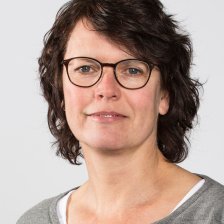 Wiep ScheperPI PROF.DR.
Wiep ScheperPI PROF.DR. -
 Wiesje van der FlierPI PROF.DR.
Wiesje van der FlierPI PROF.DR. -
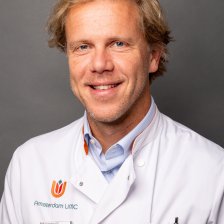 Willem de HaanPI DR. PhD
Willem de HaanPI DR. PhD -
Willem van GoolPI PROF.DR.
-
 Wilma van de BergPI PhD PROF.
Wilma van de BergPI PhD PROF. -
Yasmine Dreissen
-
 Yolande PijnenburgPI PROF.DR.
Yolande PijnenburgPI PROF.DR.



